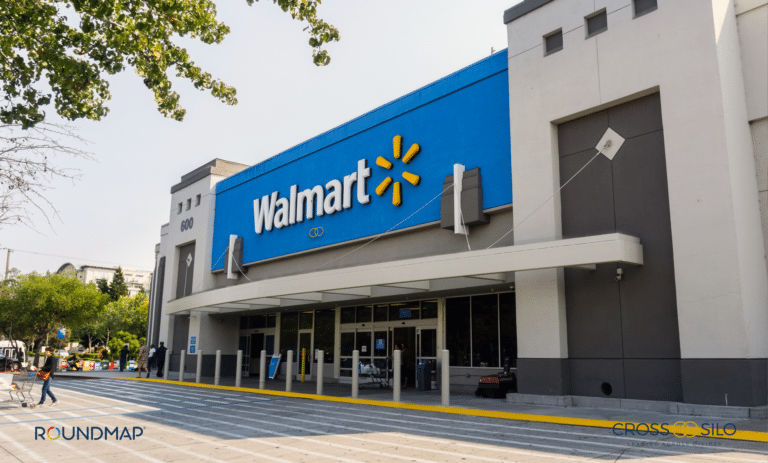Case Study: DSM

The multinational, DSM-Firmenich (a global leader in health, nutrition, and bioscience combined with the world’s largest privately-owned fragrance and taste company) deployed Creating Shared Value (CSV) as a business strategy after recognizing that it faced the same key challenges as its stakeholders, particularly around climate change, energy needs, and improving health and wellness for a growing global population.
The company saw an opportunity to create sustainable value through innovations that would help customers provide better solutions while serving “People, Planet and Profit.” According to Jos Haastrecht, the impact of this strategy reaches across different stakeholder groups:
- Customers receive more sustainable, longer-lasting, safer, healthier, and more nutritious alternatives, allowing them to offer improved and differentiated products to their end-users. This includes innovations like lighter, safer materials for automotive manufacturing.
- NGOs and governments derive value from DSM’s solutions that benefit society and the environment, including partnerships like the one with UN World Food Programme to combat malnutrition.
- Employees experience increased engagement and motivation through contributing to societal improvement and feel connected to the company’s success in making positive impact.
- Shareholders benefit from stronger growth and profitability resulting from the CSV strategy.
- In materials science, they develop lighter, safer, stronger, and more durable materials with lower environmental footprints throughout value chains, with specific applications in the automotive industry reducing fuel consumption and improving safety.
- Their nutrition solutions, implemented through a partnership with UN World Food Programme since 2007, provide essential vitamins, nutrients, and fortified rice, focusing on vulnerable populations in countries like Nepal, Kenya, Bangladesh, and Afghanistan.
- The company has also developed their People+ Approach, which includes metrics to measure impact on consumers, workers, and communities. This uses the “DSM People Life Cycle Analysis” to assess products’ impact on health, comfort, and well-being, and transforms supplier and customer relationships into co-creation partnerships.
The effectiveness of this strategy is demonstrated through DSM’s ability to measure positive outcomes through regular stakeholder perception surveys, media coverage metrics, and digital channel engagement analytics.
Continue Reading:

Mapping the Future: We’re Writing the Book on RoundMap®
At RoundMap®, we believe the future of business lies in wholeness, not fragmentation. For too long, organizations have been shaped by linear thinking, short-term gains,

More Than Crumbs: The Case for True Value Creation
For decades, shareholder primacy has dictated corporate decision-making, driving businesses to prioritize short-term profits and disproportionate returns to shareholders over long-term sustainability and stakeholder value.

Beyond Extraction: Why Regenerative Business is the Only Way Forward
The RoundMap’s Regenerative Business Framework proposes a dual-cycle approach to business: one focused on value creation and another on impact. However, reality presents us with

RoundMap Regenerative Business Framework: Empowering the Present while Building the Future
Executive Summary The Regenerative Business Framework addresses the critical need for businesses to move beyond mere profitability toward regenerative practices that drive long-term growth and

The RoundMap Flywheel: A Shift Toward Sustainable Ecosystem Resilience
What if impact creation was as strategic and intentional as value creation? What if every dollar earned didn’t just fuel a business’s bottom line but

From Striving to Thriving: How Amazon is a Strive-Driven Giant Failing to Thrive
Amazon has become synonymous with business success, often hailed as a master of efficiency, customer obsession, and innovation. At the heart of its growth strategy

Impact Strategies to Amplify Value and Mitigate Harm Across Stakeholders
What if doing the right thing wasn’t just a moral choice but a strategic one? What if amplifying your organization’s positive impact while mitigating harm

From Extraction to Contribution: Thriving Together with Shared Success
The Flywheel of Shared Success is designed to demonstrate that staying within the boundaries of responsible growth doesn’t mean limiting our ambitions—it means channeling them

The Twin Engines of Progress: Returns on Value and Impact
At the heart of the Flywheel of Shared Success lies the powerful interplay between Value Returns and Impact Returns, both of which operate on the

From Hopping for Cash to Building Bridges: Why Self-Interest Alone Can’t Sustain Shared Prosperity
What we’re proposing with the Flywheel of Shared Success is nothing short of a call to confront and correct our deeply flawed execution of Adam

The Strive & Thrive Cycle: Distinquishing Between Value and Impact
Distinguishing between value creation and deployment (Strive-phase) and impact creation and deployment (Thrive-phase) is critical to clarifying their roles within the Strive & Thrive Cycle. Here’s

From Striving to Thriving: How Decathlon is Shaping a Sustainable Future in Sports Retail
In the ever-evolving world of sports retail, the line between short-term success and long-term impact is a delicate balancing act. For companies like Decathlon, the




